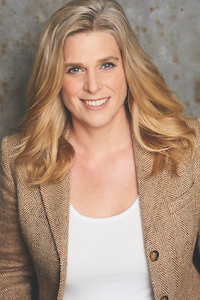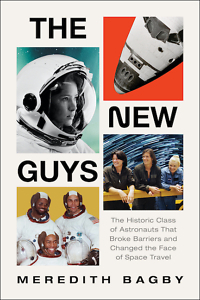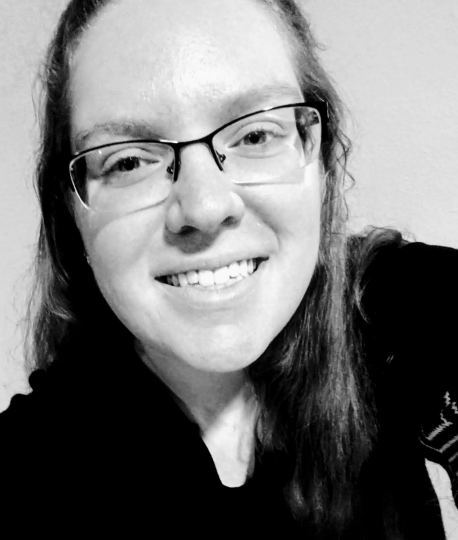Trailblazers in Space
Meredith Bagby’s The New Guys remembers NASA’s Astronaut Class 8
Meredith Bagby, nonfiction writer and political reporter and producer for CNN, demonstrates journalism at its best in The New Guys: The Historic Class of Astronauts That Broke Barriers and Changed the Face of Space Travel, her comprehensive account of NASA’s 1978 Astronaut Class 8.

Bagby approached the book with the passion of a dedicated researcher, conducting nearly 100 interviews and drawing on countless archived interviews and reports, as well as audiovisual archives, biographies, and autobiographies. She uses direct quotes whenever possible to ensure authenticity. Thanks to a combination of copious research and lively writing, The New Guys reads not as dusty history but as an immersive story recounted by a close friend.
In the spring of 1977, the National Aeronautics and Space Administration (NASA) announced that it was “for the first time ever, recruiting women and minorities to become astronauts in its new space shuttle program.” Previously, NASA only recruited military pilots, primarily white men. Class 8 — “The F*cking New Guys,” as their military predecessors referred to them — marked a major shift in accessibility for NASA:
Astronaut Class 8 looked like none before it. Gone were the rows of buzz cuts and dark suits that typified every prior astronaut group. Yes, there were the usual military pilots of old: Twenty-one were military officers, nineteen of whom had served in Vietnam. But now, there were civilians, too: doctors, engineers, chemists, physicists, earth scientists, and astronomers.
Of the trailblazing New Guys in Class 8, six were women. Sally Ride would become the first U.S. woman in space and, although she wasn’t open about her sexuality, she was gay. Judith Resnik was the second U.S. woman and first Jewish American in space. Anna Fisher, the fourth U.S. woman in space, was the first mother. Guy Bluford and Ronald McNair were the first and second African Americans in space, respectively, and Ellison Onizuka was the first Asian American.
 Tennessee native Rhea Seddon, like fellow astronaut Anna Fisher, prioritized family over breaking the record as the first woman in space, opting instead to support Sally Ride when she was chosen to go first. “I was raised to be a fine Southern lady,” said Rhea. Her father supported her interest in science, but, as Bagby writes, her “friends thought she should just get married; her sister said she was ‘crazy’” and her mother “shook her head with a bemused smile” as Rhea became a doctor, then moved on to NASA. Rhea flew on three space shuttle missions and married her fellow New Guy Robert “Hoot” Gibson, becoming one of the first “space families” along with Anna Fisher and her husband, astronaut Bill Fisher.
Tennessee native Rhea Seddon, like fellow astronaut Anna Fisher, prioritized family over breaking the record as the first woman in space, opting instead to support Sally Ride when she was chosen to go first. “I was raised to be a fine Southern lady,” said Rhea. Her father supported her interest in science, but, as Bagby writes, her “friends thought she should just get married; her sister said she was ‘crazy’” and her mother “shook her head with a bemused smile” as Rhea became a doctor, then moved on to NASA. Rhea flew on three space shuttle missions and married her fellow New Guy Robert “Hoot” Gibson, becoming one of the first “space families” along with Anna Fisher and her husband, astronaut Bill Fisher.
Bagby delves into the complicated insider politics of NASA’s ventures, revealing the pressured underbelly of a burgeoning technology and the dangers that come from mixing groundbreaking engineering feats with administrative politics, deadlines, and budget cuts. Bagby explores the details behind several of the most egregious errors of the program and the accidents they caused, including the destruction of the Challenger and Columbia shuttles and the loss of their crews.
Challenger’s final flight launched on January 28, 1986 and included Resnik, Onizuka and McNair on its seven-member crew, as well as Teacher in Space lottery winner Christa McAuliffe, who was meant to serve as further inspiration to young individuals to pursue degrees in the sciences. With care and patience, Bagby walks us through the timeline of the fateful flight, spotlighting every small oversight and negligent administrative decision that led to the disaster. The tragedy, however, didn’t shake the NASA community’s faith in the larger mission. Even in the immediate aftermath of the accident, June Scobee, whose husband Richard Scobee was commander on the Challenger, implored Vice President George H.W. Bush and others to honor the fallen by carrying on their work: “’Keep space exploration alive,’ she begged. ‘Continue the space program.’”
With The New Guys, Bagby continues the tradition of honoring those involved in the high-stakes environment of space flight, offering a vivid reminder of the human and technological challenges they face.

Abby N. Lewis is a part-time desk assistant for the North Knoxville Library, an adjunct English instructor at ETSU, and an academic support tutor at Pellissippi. She is the author of the poetry collection Reticent and the chapbook This Fluid Journey.


